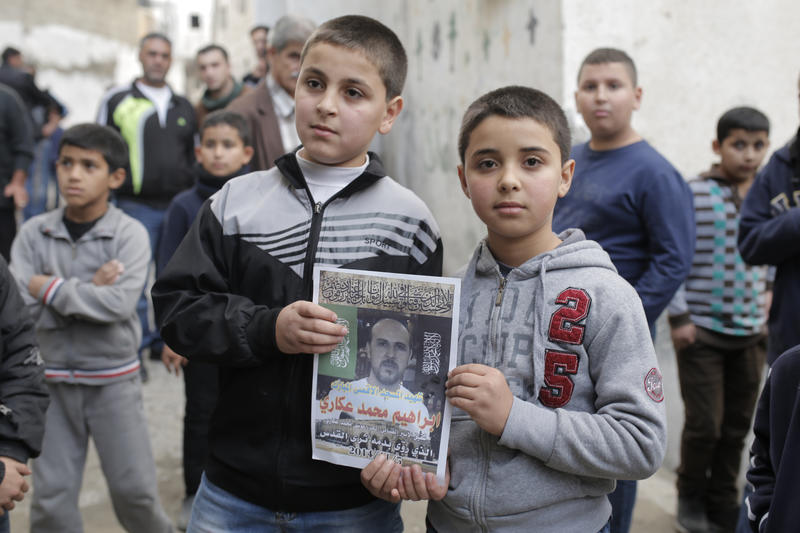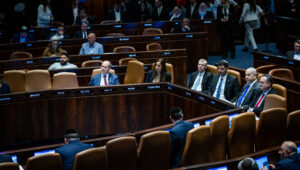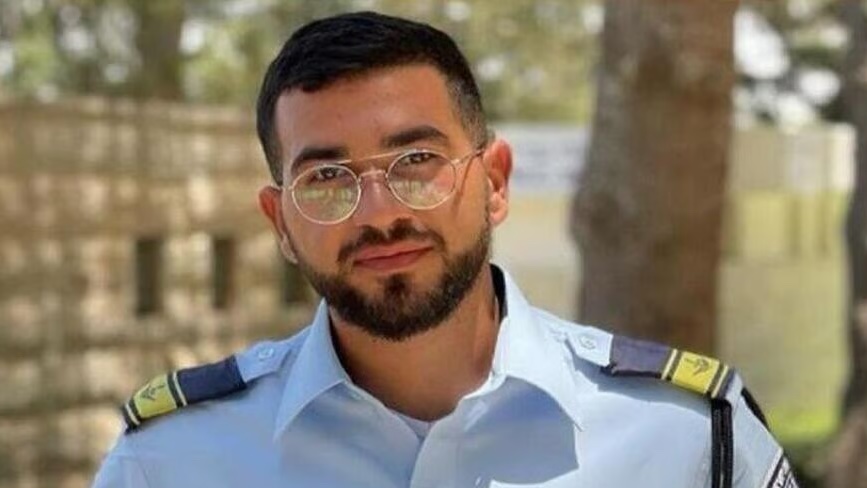(JNS) Imagine a teenager: juggling schoolwork, hockey practice, music lessons or preparing for a big exam. For most young people, life is about learning, growing and exploring the world.
My eight teenage grandchildren spend their afternoons focused on studies, charitable work and sports, dreaming of college, careers and marriage when the time is right. They are guided by curiosity and ambition, not by the expectation of dying in the name of a political cause.
Now imagine a very different world.
According to Palestinian Media Watch, Palestinian Authority Ramallah district governor Laila Ghannam praised families on July 27 whose children sacrificed their high-school diplomas for the “greater shahada” of martyrdom—comparing funerals to joyous weddings held in Paradise. This is a society in which children are taught that the highest honor is not learning, creating or building, but killing or being killed in the service of a political struggle.
For decades, Palestinian Authority leaders have elevated martyrdom above all else.
In 2015, Fatah declared that “Martyrdom-death for Palestine is a destiny we assume willingly and serenely,” while in 2020, Deputy Mahmoud Al-Aloul praised martyrs as “the most honorable and noble of people.” Meanwhile, PA schoolbooks continue to indoctrinate children with the message that the ultimate moral and religious duty is to die for the cause, rather than to live, learn and build a future.
The Institute for Monitoring Peace and Cultural Tolerance in School Education (IMPACT-se) has documented Palestinian textbooks that omit Israel entirely from maps, portraying the land as an eternal single Palestine; include arithmetic problems that count martyrs killed over time; and describe youth deaths as “fuel” powering the intifada, praising them as sacred sacrifices.
Marcus Sheff, CEO of the Institute for Monitoring Peace and Cultural Tolerance in School Education (IMPACT-se), warns that this is more than poor pedagogy; it’s indoctrination. He notes that “textbooks are uniquely authoritative in this region … children learn what is in their books, what is on their desks … a whole subject is connected to a textbook.”
The PA doesn’t just teach martyrdom in textbooks. It institutionalizes it throughout society:
- Parks, streets and schools are favored memorials to terrorists in Ramallah and other PA-controlled areas. For example, Ayyat al-Akhras, a 17-year-old who carried out a 2002 suicide bombing in Jerusalem, killing three civilians, is celebrated in PA media and school curricula. Summer camps and public ceremonies honor her “sacrifice,” presenting her as a role model for youth. Similarly, Dalal Mughrabi, the mastermind of the 1978 Coastal Road Massacre that killed 38 civilians, including 13 children, is memorialized in schools and public spaces.
- Funerals of those labeled “martyrs” are treated as national festivals, complete with flags, state sponsorship and attendance by senior officials.
- There are financial rewards. Through the so-called “Martyrs Fund,” families of terrorists killed or imprisoned while attacking Israelis receive monthly stipends, often higher than average Palestinian wages. This reinforces the idea that violence is not only honorable but profitable.
- Summer camps sponsored by Fatah and Hamas train children in paramilitary drills while glorifying martyrdom, cultivating the notion that self-sacrifice through violence is the highest aspiration.
These practices send a clear message: in Palestinian civic life, heroism is defined by the willingness to kill or die, not by education, creativity or constructive civic engagement.
Celebrating martyrdom indoctrinates a culture of sacrifice over citizenship. A state must cultivate critical thinking, peaceful coexistence and mutual recognition—not valorize the destruction of life. Until Palestinian youth are re-educated away from martyrdom narratives, their leaders will be unable to claim moral or civic legitimacy in the international sphere.
Western institutions have begun pushing back. In the US Congress, the Peace and Tolerance in Palestinian Education Act (H.R. 3266) passed the House in November 2023. It mandates State Department reporting on PA curriculum materials, including whether they incite violence and whether US aid supports such content.
Meanwhile, other regional examples show that reform is possible. Saudi Arabia, the United Arab Emirates, Morocco and Egypt have all removed violent or antisemitic materials from schoolbooks in recent years. The contrast with Palestinian curricula—and the continued naming of streets and camps after teenage terrorists like Ayyat al-Akhras—could not be sharper.
Critics argue that real change must be internal. Michael Milshtein of the Moshe Dayan Center contends that reform requires a German-style reckoning from within Palestinian society, not just cosmetic edits to textbooks.
The story of Ayyat al-Akhras exemplifies the human consequences of this glorification. At 17, she could have been finishing high school, pursuing a career or simply living a life of learning and growth. Instead, she carried out a suicide bombing, killing civilians, and is now celebrated as a national hero by Palestinian authorities. Her example is shown to children in textbooks, youth programs and public ceremonies, teaching them that the highest honor a teenager can achieve is the killing of innocents.
For Western audiences, this reality is difficult to grasp: children being taught that death in violence is preferable to life, education and opportunity. Until Palestinian leaders reject this narrative and honor life over death, the dream of a peaceful, viable Palestinian state will remain beyond reach.
Want more news from Israel?
Click Here to sign up for our FREE daily email updates














